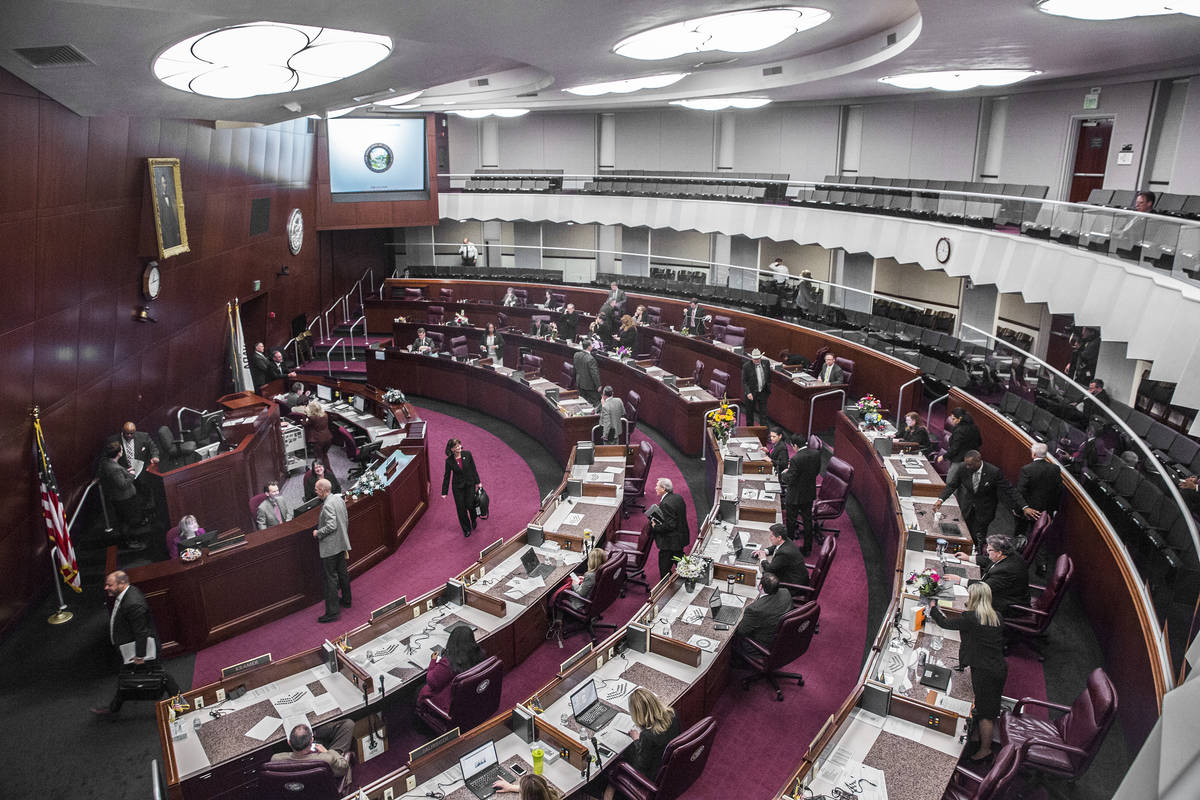EDITORIAL: Legislature needs to rein in governor’s emergency powers

Checks and balances work only when one branch of government is willing to check another.
For almost a year, Nevadans have endured varying levels of restrictions from Gov. Steve Sisolak. There have been limits on schools, businesses, houses of worship and even gatherings at personal residences. The governor has issued those rules in an attempt to slow the spread of the coronavirus.
His directives have been controversial, especially as the pandemic has dragged on. But it’s how the restrictions came about that should be even more concerning.
In Nevada, the legislative branch is charged with creating laws. The governor and the executive branch put them into effect. It’s an example of the separation of powers, which is an important check on conflicts and tyranny.
“The division of powers is probably the most important single principle of government declaring and guaranteeing the liberties of the people,” the Nevada Supreme Court wrote in a 1967 decision.
Gov. Sisolak’s various COVID edicts, however, were never passed by the Legislature. He’s been the one authoring the emergency declarations he then enforces. He’s assumed the dual powers of two government branches.
There are limited scenarios when that consolidation of power may be temporarily appropriate. The Legislature laid out many of them in Nevada’s emergency management statutes. They include an enemy attack and natural disasters, such as fires, floods and storms. In the face of an immediate threat, there sometimes isn’t time for lawmakers to meet. Unified, direct action has its place.
In a new report, Robert Fellner, vice president of Nevada Policy, reviewed the legislative history of the Emergency Powers of the Governor Act. He concluded that legislators intended only to authorize emergency powers for events requiring “immediate government action … to save lives from imminent and certain death or bodily harm.”
The intent wasn’t to grant the governor unlimited authority for months on end.
So far, legislative Democrats, who control both houses, have shown little interest in standing up for their branch of government. That’s a short-sighted mistake. Under the precedent set by Gov. Sisolak, a future Republican governor could one day cite a non-imminent emergency to impose a host of rules Democrats would find unpalatable.
Republicans in the Assembly have put forward Assembly Bill 93, which would restrict the governor’s emergency powers. Most notably, the Legislature would have to approve an emergency declaration that extended beyond 15 days.
That’s a good proposal. Legislative Democrats shouldn’t view it through a partisan lenses, but recognize that it’s an attempt to defend the Legislature’s constitutional authority.